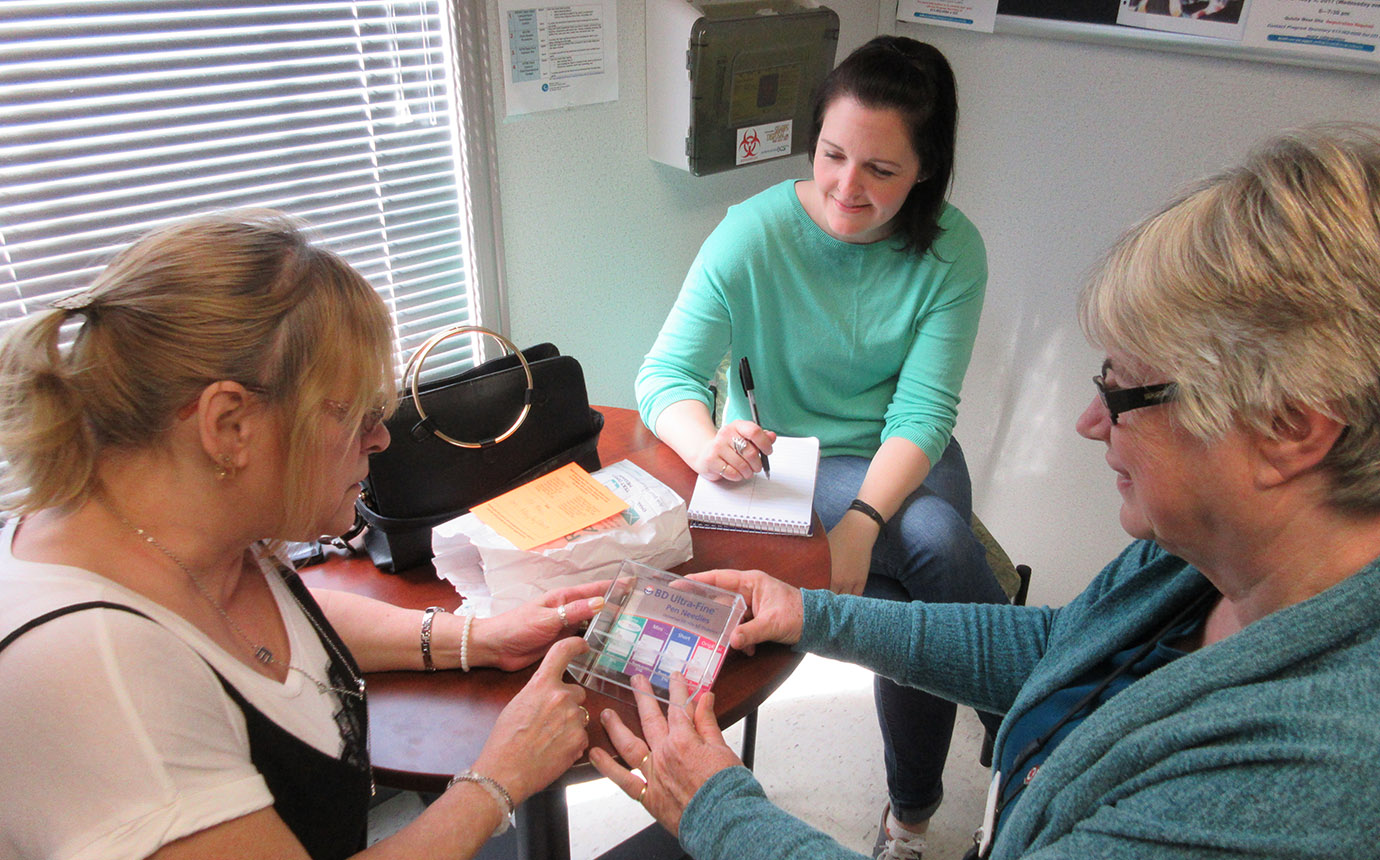
Infection Prevention and Control
At BQWCHC we recognize the importance taking every precaution to promote infection control to minimize risk of spreading infection for our clients and employees.
How infections are spread:
Communicable diseases are illnesses that are caused by germs, which include bacteria, viruses, parasites, or fungi. These germs are found in body secretions, such as stool, mucus, phlegm or in tiny droplets that are breathed, coughed, or sneezed out.
Germs that cause communicable diseases are spread from person to person in different ways. Some germs are spread through the air. Others are spread by touching a person infected with the illness or by touching an object that has the germ. Germs can also be spread through water or contaminated food.
When you arrive at our Centre with symptoms such as a cough, cold or fever please clean your hands with the hand gel, put on a disposable mask and notify the receptionist.
Hand Hygiene
Alcohol hand rub is located at the entrance of our facilities, in the reception areas and in all clinical areas, and we request that it is used upon entry to the facility, at the beginning and end of each appointment, and again as you exit the building.
We all have a role to play in practising optimal hand hygiene every day and in every setting. Together we can make a difference and reduce the spread of germs by always practising good hand hygiene.
Tips for the Prevention of Infection:
- Keep your immune system strong. Eat well, get regular exercise, and get a good night’s sleep.
- Keep your Immunizations current. Get your annual flu shot and review additional immunizations you may require with your provider.
- Keep surfaces clean. Doorknobs, light switches, telephones, toys, keyboards and other surfaces can become contaminated with all kinds of bacteria and viruses. Regular cleaning and disinfecting of these surfaces can help.
- Don’t share eating utensils, lipsticks, drinking cups, etc.
- Cover up when you cough or sneeze. Use a tissue and dispose of it as soon as possible. If you do not have a tissue, raise your arm up to your face to cough or sneeze into your sleeve. Always clean your hands immediately after. Do not put your fingers into your eyes, nose, or mouth.
- If you get sick, stay home. If you go out when you are sick, you may spread your illness to co-workers, classmates, neighbours, or others. When you are well rested you increase the chances of getting better faster. Return to work when you no longer have a fever and your cough is improving.
Safety Tips for Clients
As part of its commitment to patient safety, the Ontario Hospital Association, in partnership with the Ministry of Health and Long-Term Care, launched a Patient Safety Tips Campaign that we have adapted for the Primary Care Setting.
Clients have an important role to play at each stage of their care and the safety tips will serve to encourage them to be more involved in their health care.
Your Health Care - Be Involved!
The Client Safety Tips for the Pimary Care Setting are:
- Be involved in your health care. Speak up if you have questions or concerns about your care.
- Tell your Health Care Provider (Physician and Nurse Practitioner) about your past illnesses and your current health condition.
- Bring all of your medications with you when you come to an appointment for a medication review, after you have had medications changed by an external provider, or if you have been discharged from a hospital. Attend appointments with our pharmacist as arranged.
- Tell your Health Care Provider (Physician and Nurse Practitioner) if you have ever had an allergic or bad reaction to any medicine or food.
- Make sure you know what to do when you go home from the hospital and contact your BQWCHC provider for a follow-up appointment after your discharge from hospital.
